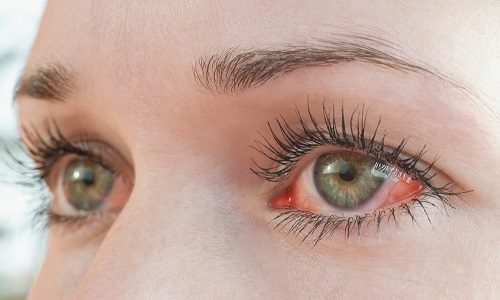
Myth #1: Sitting Too Close to the TV Will Ruin Your Eyes
Sitting too close to a TV or computer screen will not cause permanent damage to your vision. However, this doesn’t mean it has no effect on your eyes. Staring at a TV, computer screen or any digital device too close or for too long can cause digital eye strain in the form of bloodshot eyes, dry eyes and headaches. Avoid digital eye strain by limiting your usage and taking frequent breaks.
Myth #2: Eating Carrots Improves Vision
While carrots are certainly good for your overall health, they won’t necessarily make your eyesight sharper. Carrots contain vitamin A, a nutrient that can boost eye health. While vitamin A deficiency can cause vision problems, it is in no way related to carrots. In order to maintain strong vision, it’s best to focus on eating a balanced diet rich in vitamins A and C and minerals such as lutein and zeaxanthin.
Myth #3: Squinting Damages Vision
Squinting does not ruin your vision, but it can be a sign that you have vision problems. If you find yourself constantly squinting to read something in the distance, it may be because you are nearsighted. Visit your optometrist for a comprehensive eye exam.
Myth #4: Reading in the Dark Ruins Your Vision
Like sitting too close to the TV, reading in the dark does not ruin your vision. Straining to read in the dark or in a poorly lit room may cause short-term discomfort but there is no evidence to suggest that it causes any long-term damage to your eyes.
Myth #5: Glasses and Contacts Weaken Vision
It is a common misconception that relying on glasses and contacts makes you dependent on them or further weakens your vision. This is not true. However, you can damage your eyes if you are not using the correct prescription or have some other issue with your contact lenses. To avoid this, visit your eye doctor regularly.
While glasses and contacts do not weaken vision, there are a few challenges that come with them. Some people suffer from chronic headaches or sinus problems due to wearing glasses. Similarly, people who use contact lenses may experience red eyes, itchiness and burning from time to time.
If you are tired of wearing glasses or contacts, it may be time to consider LASIK surgery. LASIK can help you achieve long-lasting clearer vision and reduce your dependency on glasses and contacts. To learn more about LASIK, schedule a consultation by emailing us at mmandel@optimaeye.com.


